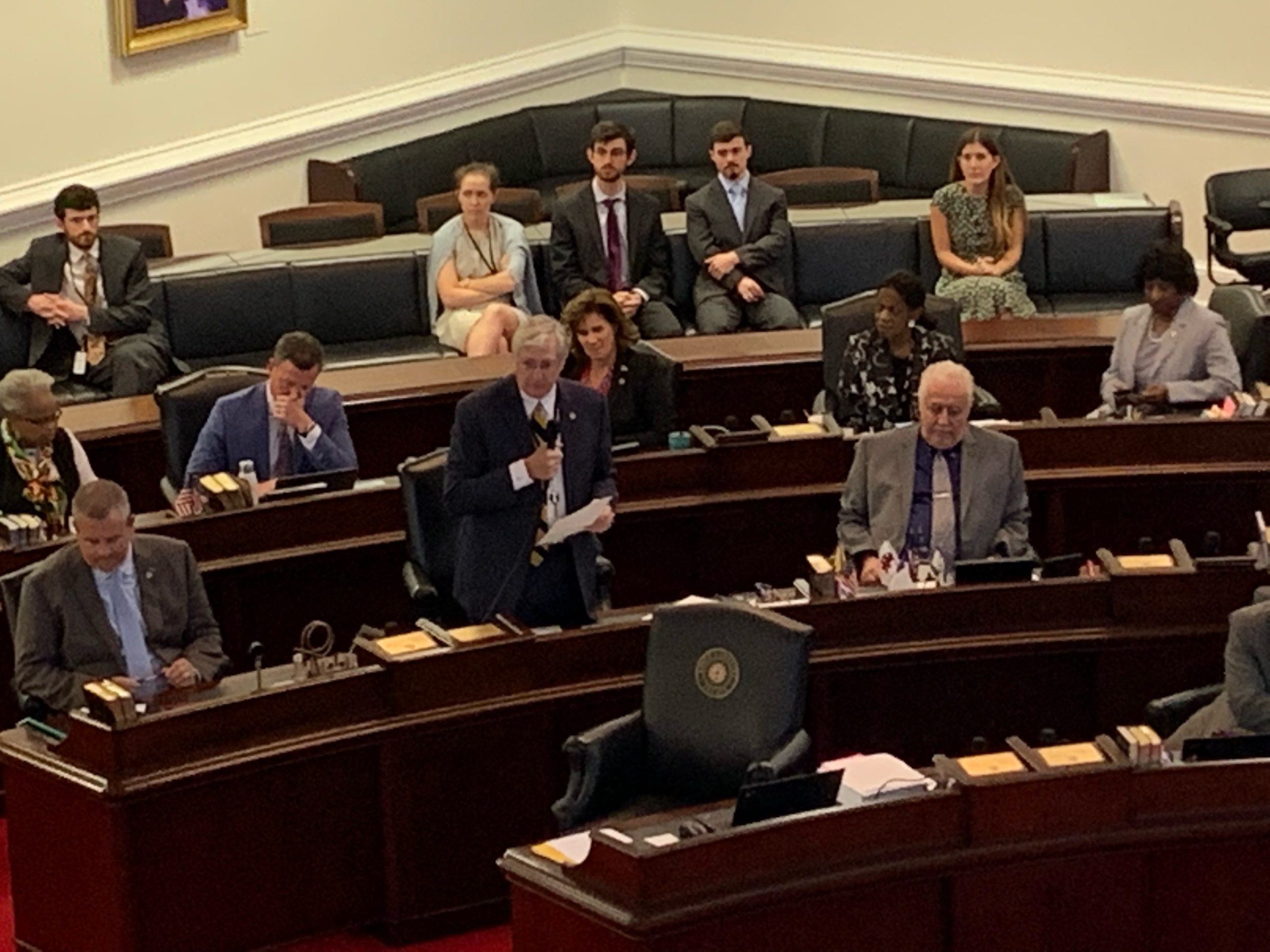Legislators in both the N.C. House and Senate took a short break from pressing business today to mark the 91st birthday of Thomas Sowell. The Gastonia native has injected important economic concepts into high-profile national public policy debates for decades.
John Locke Foundation CEO Amy Cooke had urged state officials to honor Sowell during a recent edition of her “Right AOC on Point” video series.
Rep. John Torbett and Sen. Ted Alexander, both of whom represent Gaston County, submitted official statements honoring Sowell within their respective chambers. Both followed up the formal written statements with spoken comments on Sowell’s legacy. (Watch Torbett’s floor speech at this link.) (Hear Alexander’s floor speech at this link.) The written documents will be added to the official journals of House and Senate proceedings.
“Thomas Sowell’s distinguished career as an educator, commentator, and public intellectual reflects well on the state where he was born and spent his early childhood years,” according to formal statements from Torbett and Alexander.

“Now, therefore, on his 91st birthday, this is an excellent opportunity to express appreciation for the life and distinguished career of Thomas Sowell.”
Both the House and Senate statements note that Sowell “was born June 30, 1930, in Gastonia, North Carolina, and lived in the Tar Heel State for the first nine years of his life.”
“[N]ever meeting the father who died shortly before he was born, and spending much of his early life under the care of a great-aunt and her two grown daughters who adopted him, Thomas Sowell became the first member of his family to study in school beyond the sixth grade,” the statements added.
“[D]ropping out of high school at age 17 because of financial difficulties and home problems, Thomas Sowell worked in a number of jobs before being drafted into the military during the Korean War and serving in the United States Marine Corps.”
“[A]fter his military service, Thomas Sowell worked a civil service job by day in Washington, D.C., took night classes at Howard University, and demonstrated such academic promise that he was admitted to Harvard University, where he graduated magna cum laude in 1958 with a degree in economics.”
“Thomas Sowell followed his exemplary studies at Harvard by earning a master’s degree from Columbia University, and a doctor of philosophy degree in economics from the University of Chicago.”
“Thomas Sowell taught economics at Howard, Rutgers, Cornell, Brandeis, Amherst, and the University of California at Los Angeles, before taking the position of senior fellow in 1980 at the Hoover Institution at Stanford University.”
“Thomas Sowell’s prominent academic career has included original and thought-provoking work in the history of classical economics; the interaction of economics, sociology, and politics of race and ethnic groups; and issues of how people deal with limited knowledge in making economic choices.”
“Thomas Sowell has shared his knowledge beyond the classroom and lecture hall, especially in writing that dates back as far as 1950, when the Washington Star newspaper published his letter urging the desegregation of the city’s public schools.”
“Thomas Sowell’s writing reached its widest audience through a syndicated column that appeared at least once a week for a quarter-century in as many as 150 newspapers across the country until he decided at age 86 to end that part of his career.”
“Thomas Sowell has specialized in simplifying complex economic concepts for the average reader, including his definition of the term ‘scarcity’: ‘It means that what everybody wants adds up to more than there is.’”
“[T]he end of Thomas Sowell’s newspaper column did not mean an end to his writing of books, which number in the dozens, including more than 10 new and updated volumes since he turned 80.”
“[U]pon reaching his 90th birthday in 2020, Thomas Sowell published a brand new book titled ‘Charter Schools and Their Enemies,’ the latest in a series of explorations of education topics that dates back to 1972’s ‘Black Education: Myths and Tragedies.’”
“[P]revious honors for Thomas Sowell include the Bradley Prize for intellectual achievement and the 2002 National Humanities Medal, which cited his focus ‘on empirical evidence rather than theoretical possibilities,’ as well as his feeling that ‘intellectual rigor, whatever the subject, is needed in education to prepare students for the world outside the academy.’”